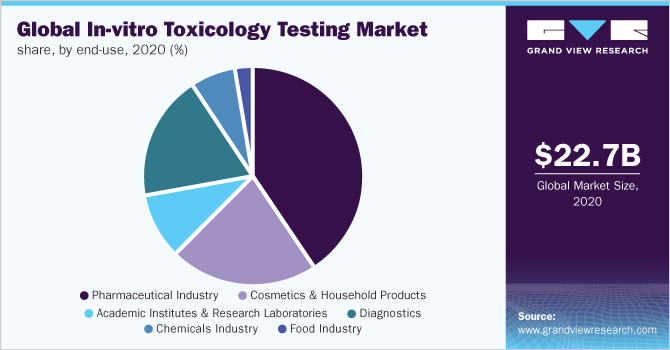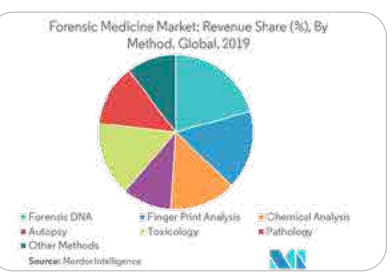1. Toxicology
Toxicology meets to association of chemicals with relation to living structures. Pharmacological medicine is targeted for specific pathogens & disease and truthful for removing of toxins which has negative impact on life. Side by side it is assorted business and workshops which helpful in improvement of chemicals by the management.
-
Toxic recognition
-
Route of exposure
-
Rapid diagnosis and empiric therapy.
2.Drug Safety
It is also known as pharmacovigilance. It states the frequency of adverse drug effects. It confirms during treatment and were not present before treatment. World health organization held activities relating to detection, assessment and prevention of adverse effects.
-
Medication safety
-
Adverse drug reaction
-
Patient safety
3. Drug Delivery
Drug delivery is method used for formulations, manufacturing, storage systems and mainly involved in transporting pharmaceutical compound to its target site. It has been long used to improve health and extend lives.
-
Brain targeting
-
Infectious disease
-
Lung disease
4. Pharmacotherapy
Therapy using pharmaceutical drugs as abstracted from therapy using surgery, radiation, movement and other modes. They use applied science, translational science, basic science to form new pharmaceutical drug. A quality pharmacist training and experience in biomedical and clinical sciences.
-
Pharmacology
-
Surgery and medication
5.Pharmacology
Pharmacology is branch of science used to study drugs on different pyramid. It defines the knowledge of prescription base s, its impacts and medical enterprises. It is branch of science that has variety of professions like as dentistry, nursing. The two main domain of pharmacology are pharmacokinetics and pharmacodynamics.
-
Analgesia
-
Stimulus response
6.Clinical Toxicology
Clinical toxicology is a term which involved different forms of toxic chemicals and related with different types of disease. It deals with adequate effects of agents such as chemical, drugs etc. clinical toxicology is also known as clinical chemistry. Clinical chemistry involves composition of body fluids facing molecular diagnostics with best result.
-
Occupational and environmental medicine
-
Regulatory toxicology
7.Health Toxicology
Health toxicology is term used for determining health risk from exposure to chemicals which are increasing day by day due to polluted areas. All chemical can be harmful depend on time a person to be exposed, whether it is eaten, breathe or touches your skin.
-
Biological monitoring
-
Direct acting agents
-
Confounding factors
8.Risk Assessment
Risk assessment is used to decrease the agents which occur in industries and work settings as well as protect individual from such areas. These determine the culture of security to their do “s and don’t” s. Toxicology data evaluate the risk of ecofriendly environment.
-
Risk score
-
Risk remediation
9.Genetic Toxicology
Genetic toxicology data is used as carrier for long term carcinogenicity data using early drug development. The main aim of genetic testing is to identify drug candidate. Toxicology induce genetic mutation or chromosomal damage in any nucleotide sequencing.
-
Geno toxicity
-
Health impact of genetic alteration
-
Genetic processing of living cells
10.Environmental Toxicology
Environmental toxicology is a branch of biotechnology deals with effects of biological, physical and chemical changes on living organisms. Animals or human who are exposed to sprayed vegetation in field or harvesting was impact or agricultural pesticides.
-
Environmental pollutants
-
Depletion
11.Forensic Toxicology
Forensic toxicology is the testing of biological sample for presence of toxins, including drugs. This toxicology is also used for making and implementing laws such as driving under the influence of alcohol and drugs.
-
Workplace drug testing
-
Human performance toxicology
12.Drug Toxicology
It is multidisciplinary field which is applicable for all stages of drug development process to precisely known to the drug compound. Drug toxicology have 2 distinct phases: Discovery Toxicology and regulatory toxicology and explain how the mindset is change.
-
Result of ingestion
-
Dermal absorption
-
Chronic toxicity
13.Immune Toxicology
Immune toxicology is field of immunology used to study the toxicity of foreign substance and harmful effect on immune system. Some toxic agents such as heavy metals, pharmaceutical, drugs, air pollutants and some biological materials are known to alter the immune system.
-
Immunosuppression
-
Immunostimulation
14.Toxicology in Covid 19
It involved scientific expertise, manpower and supply chain system that may be developed to perform scientific research. Hospital toxicologists have a lot of knowledge with observational and random trials.
-
Medical Toxicology
-
Pathogenesis
15. Toxicity Testing
Toxicity is made up of two types of elements: - biochemical and physical. The reason for rise in lethality is really located within the ground. The most astounding dosage level for these investigations should be derived from pharmacokinetic data on the substance being studied and calculations based on the suitable test species.
-
Regulatory testing
-
High throughput screening
16.Pharmaceutical Technology
Pharmaceutical technology refers to the process of converting a dynamic pharmaceutical fixation into medicine used by patients. This technology describes the method, design and instrumentation used in fabrication, bundling, accumulating and other preparations for patient therapy.
-
Drug action
-
Health care industry
17. Applied Toxicology
It is also known as applied medical specialist, is the study how medicine influences the body. Medicine is often used to maintain healthy mode and treating or curing. It combines clarification for various medicine having connected with pharmacologic action
-
Biomedical sciences
-
Applied pharmaceutical
18. Experimental and Pharmacological Toxicology
Experimental medicine goes to a variety of drug reaction that we tend to come upon throughout sessions. Medication done at different doses to grasp the medication bioavailability, pharmacy, pharmacodynamics.
-
Chemical toxicology
-
pathology
19. Industrial and Occupational Pharmacology
We live in the outermost modernized and industrialized where it is tending to exposed to the quantity of the chemicals and cry genetic substance that cause serious injury to the body.
Economic pharmacology refers with the protection of employees and some major steps to be taken to stop the bioaccumulation of significant metals.
-
phytochemistry
-
industrial speciality skills
20.Medical Development and Safety Testing
Medicine development includes several new medications or chemicals which can influence the strength of individual. The protection series give information for composing human trials to the advancement procedure for one more medication. Additional inquiries on the liver, lungs or skin measures replied through creature concentrates so that its relative danger is thought Safety
-
MRI SAFETY
-
Testing of medical devices
21. Pharmaceutical Toxicology
Medicines have a sway on the body, and these styles of chemical typically produce facet effects. Many new medicines fail in trials as a result of protection issues outweighing the advantages of the treatment.
-
Drug toxicology
-
Health care industry
22.Aquatic Pharmacology
Aquatic pharmacology is medicine of fish culture. Cultivation and production of aquatic animals within the aquatic surroundings for human food, replenishing food stocks and for different use.
-
Pharmacokinetics
-
Antimicrobial
-
Drug residues
23. Clinical Pharmacology
It is the science of medications in humans and its optimum clinical use in patients. Clinical pharmacological medicine is mostly aim to get knowledge for optimum use of drugs. Clinical pharmacologists should have access to enough out patients for clinical care, teaching and education.
-
Predictive auto suggests
-
Product evaluation
-
Pharmaceutical drugs
24.Eco Toxicology
Different zone of pesticides that mix with natural atmosphere will influence animals and plants. This term is known as ecotoxicology. Ecotoxicology may be mixture of analytical chemistry and biological science.
-
Environmental analysis
-
Ecological biomarkers
-
Risk assessment
25. Behavior Toxicology
The new field of activity material medical and activity investigate the result of specific hepatotoxic exposures in animals and humans. Metals, solvents and pesticides are three vital categories for neurotoxic ants.
-
Public health toxicology
-
Toxic exposure
26.. Toxicology Applications
For development of novel medicine needs non clinical safety on candidate drug compound. Such issues pass general pharmacology safety material and genetic toxicity. New inventions in pharmacological medical sciences and pharmacy raising the likelihood success in non-clinical and clinical drug development.
-
Forensic toxicology
-
Fundamentals of toxicology
-
Metabolomics




